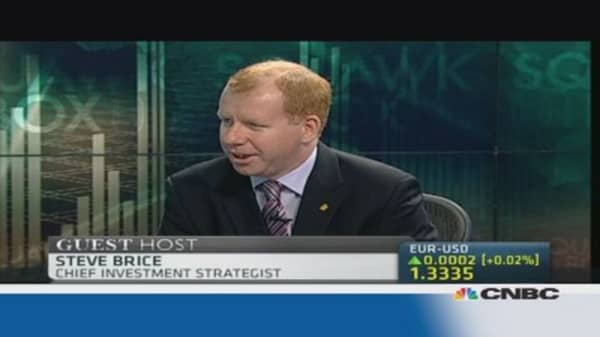A sharp sell-off in India's equity market, hit by increasingly bearish sentiment towards emerging markets generally, now provides an opportunity to snap up shares in Asia's third largest economy, some analysts say.
Indian stocks have plunged near 6 percent since Thursday, knocked down by a fall in the rupee to new record lows against the dollar and as foreign investors continue to ditch risky emerging-market assets amid fears of the U.S. Federal Reserve unwinding its monetary stimulus.
Many commentators said they would stay well away from from Indian assets right now, including Templeton Emerging Market Group's Mark Mobius, who said Indian stocks were "not quite yet" a buying opportunity.
(Read more: This market may be a 'slow moving train wreck')
But some, such as Steve Brice, chief investment strategist at Standard Chartered bank, said Indian equities look attractive from a technical standpoint.
"We like India. That's where you could make the strongest case for a bounce because we have weakened so far and so fast," said Brice.
India's benchmark stock market has fallen near 10 percent since late May to about 18,246 points and its rupee is the world's worst performing currency this year, touching fresh all-time lows against the dollar at 64.11 on Tuesday.





